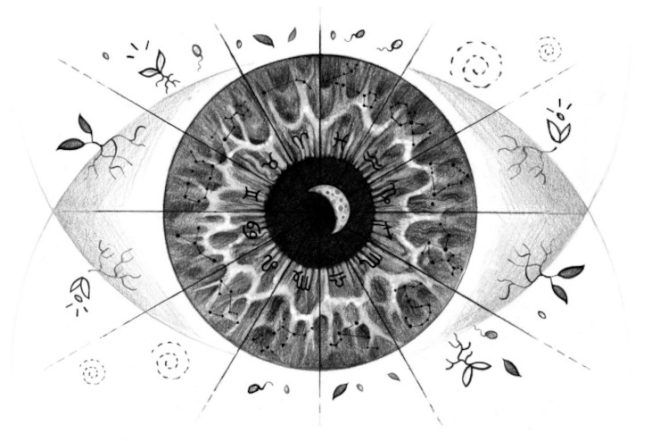Everything has an appointed season, and there is
a time for every matter under the heavens: A time
to plant and a time to uproot the planted.
—Kohelet (Ecclesiastes) 3:1-2

Beets, radishes, and spinach are easy to grow in colder or milder climes. Their seeds are among the first that can be directly planted into the garden bed in early Spring. These seeds will survive colder temperatures and a little frost. Unlike other root vegetables with tiny seeds, the beets, radishes, and spinach are the champions of early Spring, and their seeds are big enough to space easily. Carrot, onion, and leek seeds are planted at a lesser depth, and thus need to wait until things warm up. Not so with beets, radishes, and spinach. The beet, radish, and spinach seeds are screaming, “Plant me! Plant me!” The eager gardener heeds the call, springing into action.
The tuned-in gardener benefits by seeding the first vegetables as soon as the season allows, to maximize the growing season. Thus, the garden teaches time management and the importance of seizing the moment. However, the garden also teaches patience and the importance of waiting to plant the seeds that come later. If we are over-anxious and plant too soon, the seeds will not sprout. Timing is everything. As we gain more experience, we also want to space out seed plantings so we don’t harvest everything all at once. To make the garden meaningful and beneficent, we recognize that what we plant and when we plant determines what we will harvest tomorrow. The enthusiastic gardener wants to meld with the seasons and succumb to the predictable powers found in nature.
The seasons and the weather are manifestations of the passage of time and order in the universe. Outside the garden, we fight against the clock. We never have enough time. We rush here and there, worrying about being on time. We feel frustrated when we waste time. We know that we will ultimately run out of time—and back into the earth we’ll go, to push up daisies. The clock is always ticking.
The spiritual gardener, however, does not think about time antagonistically, instead counting on nature’s seasonal stability to provide soil, light, water, and warmth for the garden to flourish. An awareness of time, even if subconscious, is a critical element of successful gardening.
The experienced gardener who springs into action when the beds are ready for the first early Spring seedings feels botanically attuned. The seeds have a purpose that the gardener is trying to unleash and awaken. Your time in the garden may help you unleash and awaken your awareness of the precious moments of each day of your life.
As you breathe the air and smell the dirt, you exercise body and mind together. You are living meaningfully. Time becomes a friendly alarm clock instead of an annoying enemy.
A slave has no time of his or her own. Every minute of the slave’s day belongs to the slave’s master. A free person is someone exercising his or her own will to decide how to spend their time. As the great sages stated, the day is short and the tasks are many. When we choose to work in the garden we are not slaves to worldly, self-inflicted pressures. We are exactly where we are supposed to be. The garden allows us to sanctify time. The seeds of the purple beet, red radish, and leafy green spinach germinate exactly when they are supposed to. Each seed is neither too early nor too late. As the great physicist Erwin Schrodinger wrote in 1933, “It is a miracle that in spite of the baffling complexities of the world, certain regularities in nature can be discovered.” You can discover those regularities in your garden. Being a gardener means living happily in the space and time afforded to you. You are both found and lost in your tasks. The time flies by as the seeds go in the ground.
One early Spring day, the sun will burst through the afternoon clouds just as the gardener’s tasks are completed. The gardener will not head inside, but stay put, to linger—and feel the sun’s warmth, a harbinger of the coming days. This may be a time for the gardener to do nothing more than look at what has been sown so far, smell the dirt and breathe the air, and listen to what the birds have to say. Some of the key moments in the garden occur when you pause and, without even thinking about it, internalize the ticktock of the seasons. ❖
Reprinted with permission of the author from The Spiritual Gardener: Insights from the Jewish Tradition to Help Your Garden Grow by Andrew Becker, copyright ©2019 by Andrew Becker (Tree of the Field Publishing).



